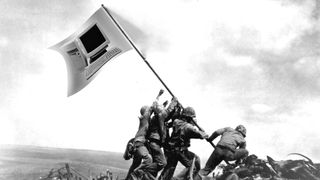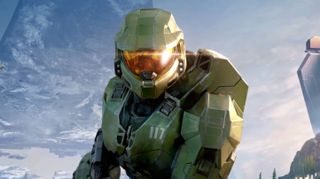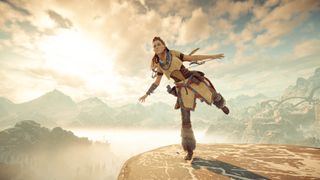Well, I guess we won the console war
With more PlayStation exclusives headed to PC, the last shot in the console war may have been fired.

Imagine logging on to your favorite PC gaming forum around 2010 and seeing something like this written there:
xXJC_dentonXx writes:
Fellow PC gamers! Imagine, if you will, a utopian future: The year is 2020, and the console war… is over. The giant walls that previously separated our platforms have fallen. PC gaming has won.
Every first-party Xbox game is available on PC. Halo. Forza. Fable. Microsoft stops trying to force PC gamers to swallow draconian DRM and puts Xbox games on *Steam*, not some kind of Games for Windows store. And let's take it a step further: Xbox uses its massive resources to make the PC versions of its games technically impressive, with tons of graphical bells and whistles. Microsoft Flight Simulator returns as the new Crysis. (Also, its fratboy franchise Gears of War becomes a turn-based strategy game, lol.)
Sony, not wanting to get left behind, uses streaming technology (like OnLive) to make all PlayStation games available on PC through PlayStation Now. Encouraged by the response, Sony eventually releases all of its exclusive franchises on Steam too. Crossplay becomes a standard, expected feature.
Oh, and almost every EA Sports game is on PC. Except for NHL, because the Hockey Gods are perpetually cruel.

A decade ago, a forum post that imagined a gaming world without console exclusives probably would have been met with forlorn replies like "If only Microsoft and Sony would read this." Console exclusives were untouchable jewels in the crowns of Sony, Microsoft, and Nintendo—vital commercial assets that were trotted out each E3 to justify the $300-600 box you had to buy in order to play them.
The biggest gaming news, reviews and hardware deals
Keep up to date with the most important stories and the best deals, as picked by the PC Gamer team.
On PlayStation it felt particularly impossible that certain esoteric Japanese gems like Yakuza, Ace Combat, or Persona would ever appear on PC, all of which have eventually defected. The rise of the remake provided further inspiration to Japanese games like Shenmue and Rez to come to PC. Who would've thought that Sega, a former combatant in the console war itself, would not only lead the charge with PC ports, but become a major PC publisher that owns Relic and Creative Assembly?
With that, the last shot in the console war may have been fired.
In retrospect, Metal Gear Solid 5 crawling its way onto our SSDs (our 2015 GOTY) was a big turning point in this process.
It seems crazy now that in the early 2010s, not only were series like Gears of War and Crackdown unavailable to PC gamers, we had to stick our arm into the wood chipper known as Games for Windows Live just to play certain blockbuster multiplatform games like Grand Theft Auto IV and Batman: Arkham Asylum. A dark time.
But in 2019, buried in a 66-page corporate PDF, Sony reaffirmed that we've stepped fully into an era where the distinctions between platforms are thinner than at any previous point in history. "We will explore expanding our 1st party titles to the PC platform," Sony wrote, all but confirming that games other than Horizon: Zero Dawn and Death Stranding will trickle their way onto PC. (At the top of our wish list: God of War, Spider-Man, and Ghost of Tsushima.)
With that, the last shot in the console war may have been fired. If you want access to the largest library of big-budget, blockbuster games, you should play on PC. It's that simple.
Don't Panic, But More PlayStation Exclusives Will Come to PC https://t.co/Zw6WyTm62Z #Sony #PC #Industry pic.twitter.com/GG3XIB99FLAugust 30, 2020
PC gamers will benefit from a console generation defined less by game exclusivity.
Strangely, the response to such seemingly momentous news was muted on both sides of the format fence. Console gamers didn't react with much furor, and PC gamers didn't erupt with enthusiasm. The relative indifference to Sony's announcement is probably an indication of how much we've internalized the expectation that every game will eventually make its way to our platform. Microsoft laid the groundwork for this a few years ago, when the company in 2015 admitted to having ignored "what was going on with Windows," as if its own operating system was an estranged child, a contrast from more recent pledges like "Delivering a great gaming experience to PC players is critically important to the future of Xbox and gaming at Microsoft."

I wanted to get a reaction to Sony's announcement from someone who actually owns a PS4, so I asked my colleague, GamesRadar managing editor Rachel Weber about the muted response to Sony's embrace of the PC: "I don't really understand anyone that would be upset about console exclusives making the move to the mouse mat crew, or anyone who would be surprised. We're at the point where the next-gen machines are just a PC in a pretty dress that don't look weird shoved under your TV, so skipping the PC market is just leaving money on the table for Sony, Microsoft and the studios that rely on them."
I admit that Sony's approach on PC, for now, remains markedly different from Microsoft's. Death Stranding took eight months to trek over. Horizon took three years. As the PlayStation 5 arrives, how quickly something like Grand Turismo 7 finds its way to Steam will tell us a lot about how the PC fits into Sony's long-term strategy.
But we can be certain that PC gamers will benefit from a console generation defined less by game exclusivity. If three of the four major gaming platforms essentially have the same library, the PC's higher technical ceiling becomes even more distinct: the ability to deliver 200+ frame rates, 4K-and-higher resolution, multi-monitor, easy streaming, all-you-can-buy SSD space, and best-in-class VR.
Though Nintendo remains the final true holdout, given the 180-degree reversal we've seen from Microsoft and Sony in the last decade, what's to say we won't be booting up Pokémon and Smash Bros. on PC in 2030? We sort of already are playing them, actually: on PC, we've received interesting independent equivalents of beloved Nintendo franchises in games like Temtem, Ooblets, Stardew Valley, Wargroove, and Brawlhalla in the last few years.
Let's promise to be gracious in victory.

Evan's a hardcore FPS enthusiast who joined PC Gamer in 2008. After an era spent publishing reviews, news, and cover features, he now oversees editorial operations for PC Gamer worldwide, including setting policy, training, and editing stories written by the wider team. His most-played FPSes are CS:GO, Team Fortress 2, Team Fortress Classic, Rainbow Six Siege, and Arma 2. His first multiplayer FPS was Quake 2, played on serial LAN in his uncle's basement, the ideal conditions for instilling a lifelong fondness for fragging. Evan also leads production of the PC Gaming Show, the annual E3 showcase event dedicated to PC gaming.
Most Popular

